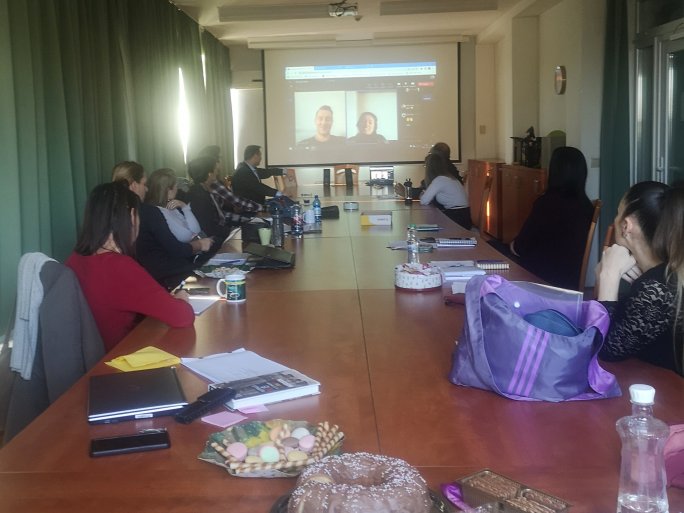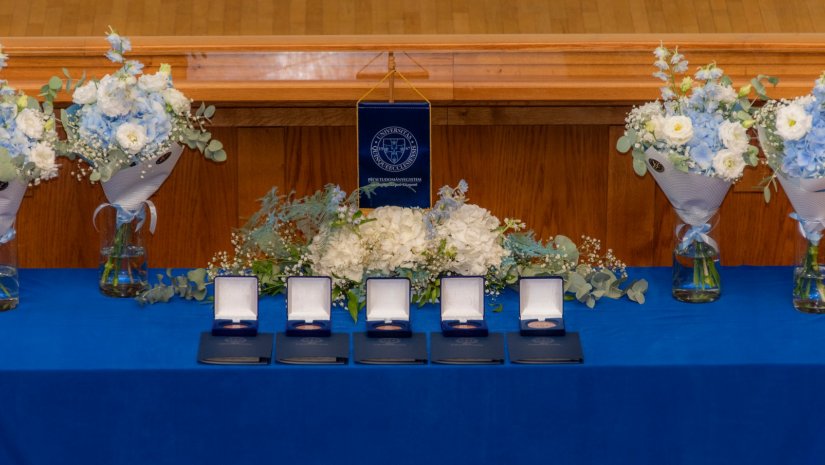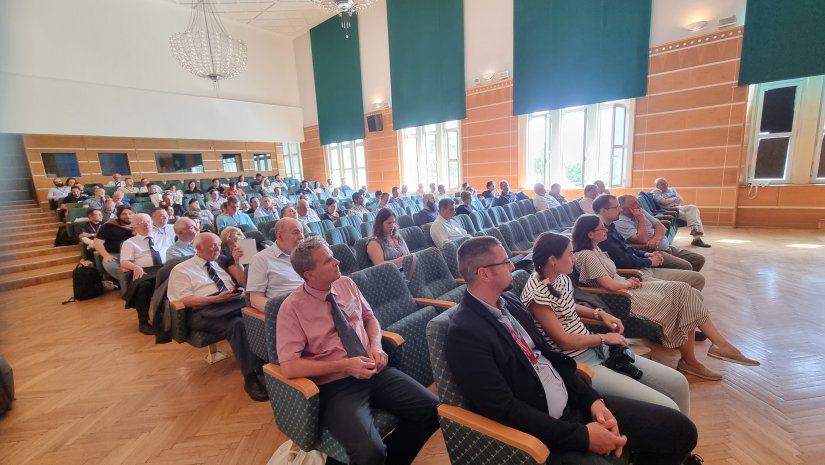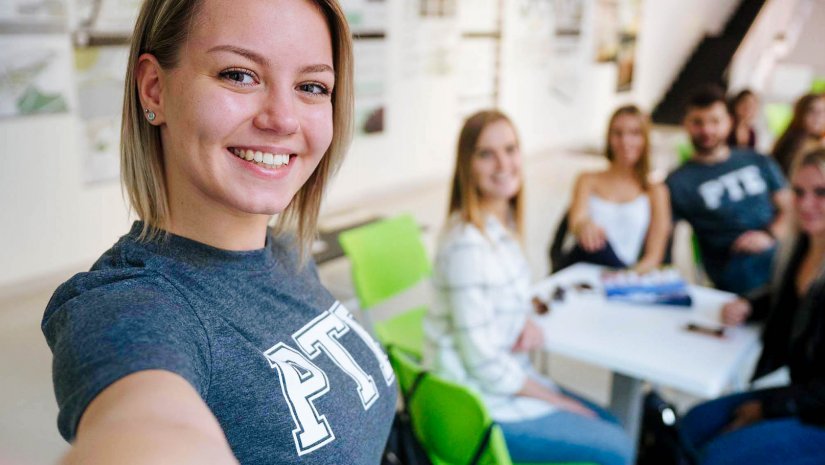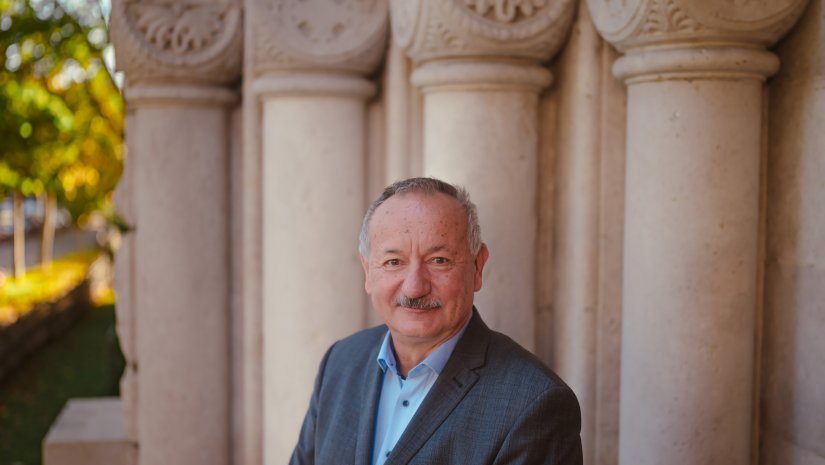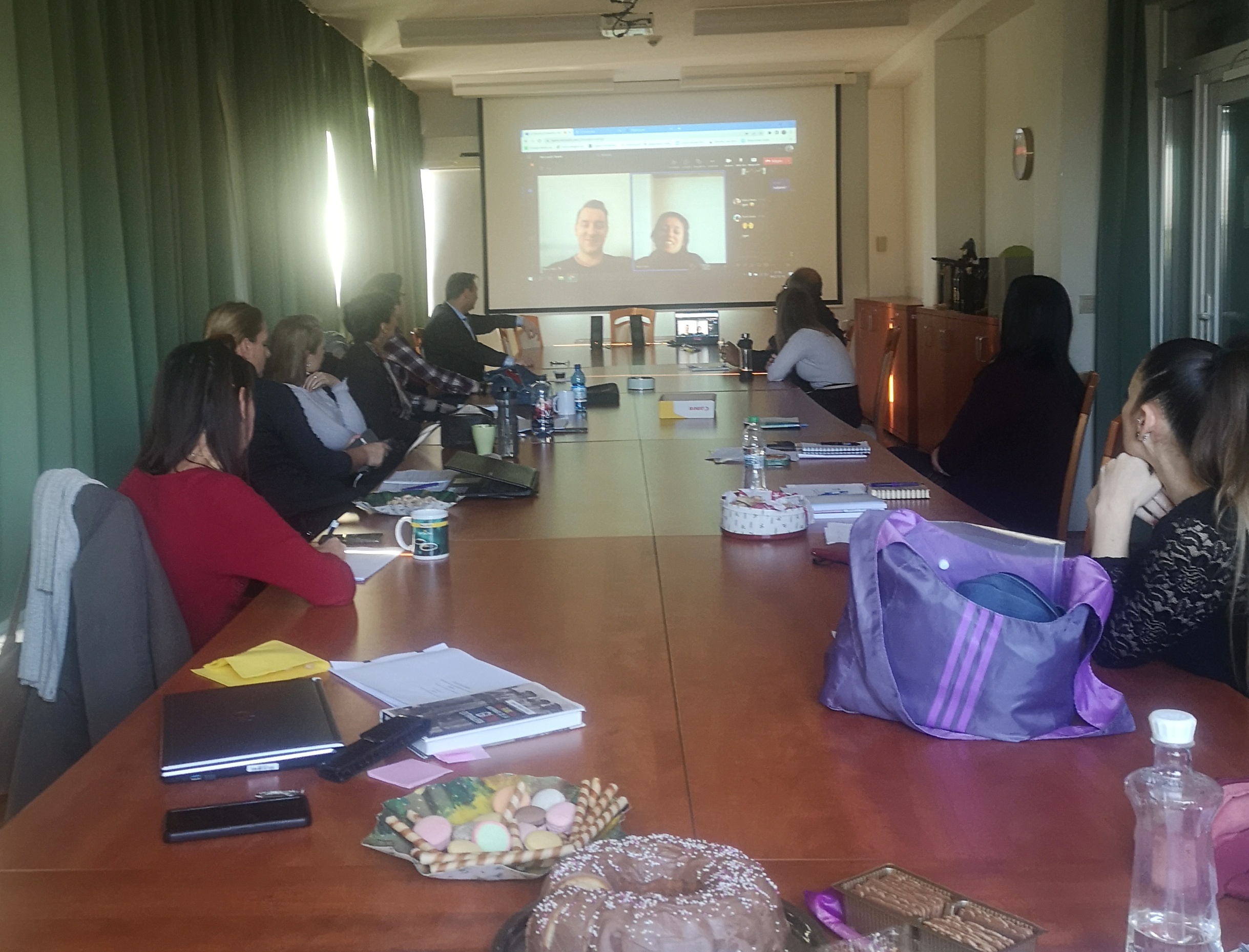
The Neo-Latin language departments of the Faculty of Humanities and Social Sciences of the University of Pécs are breaking new ground, which was sparked by an event organised by the EDUC association. A roundtable discussion on this and their experiences with EDUC was held in December in Pécs, with the title Centre and Peripheries.
"Our previous, well-established contacts are coming together in new networks", said Dr. Krisztián Bene, Head of the Department of French at the Faculty of Humanities and Social Sciences, and added: "It is of particular importance for the departments dealing with Romance languages that most of the members of the EDUC association represent these languages, as French, Spanish and Italian universities are also members.”
"Within the EDUC alliance, a professional-academic collaboration is being developed, specifically with the participation of experts in the field of Neo-Latin education and research."
The EDUC event in Paris during the summer gave the idea for this, as they organised a conference where the lingua franca was not English, but a set of Neo-Latin languages. In other words, the event was organised thematically, with presentations in French, Spanish, Portuguese or Italian. The participants understood what was being said, without officially speaking the other language.
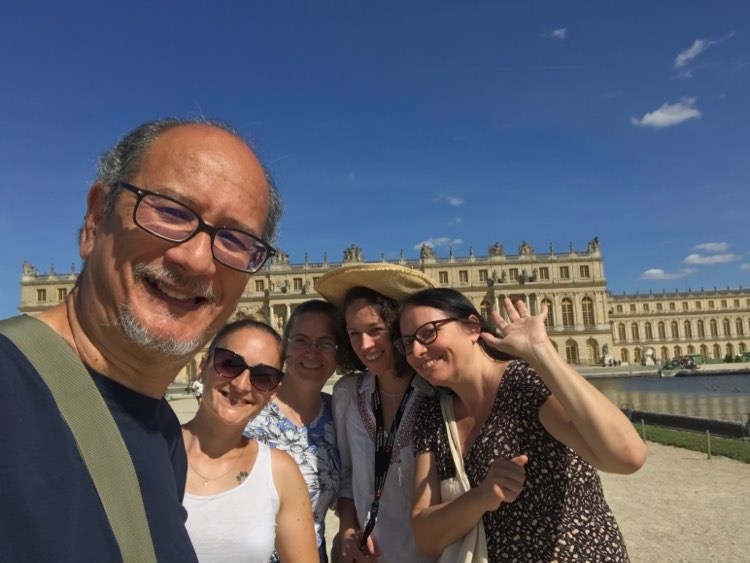
"It was interesting to discover similarities between the topics presented in different languages," said Dr. Domingo Antonio Lilón, head of the Institute of Romance Studies, who also mentioned the possibility of linking up with doctoral sub-programmes in Pécs that do not yet exist here.
The discussion also revealed that it was a great opportunity for the doctoral schools at the Faculty of Humanities and Social Sciences (PTE BTK), which are linked to the Neo-Latin world, to promote themselves. "By the fourth day, it was natural to communicate in four languages. I also received feedback on my research, which gave me a new perspective.”
“The community was also a gift, we had time to talk about science and build human relationships." - said Eszter Anna Nyúl.
Tünde Wallendums added that the links are also present beyond the EDUC organisational framework, for example, an Italian teacher who was introduced to EDUC successfully joined an Italian teacher training course in Italy, where she gave an online presentation on the challenges of multiculturalism in language teaching. "A worthwhile professional relationship has begun, and our joint research is about to be published," said Tünde Wallendums.


